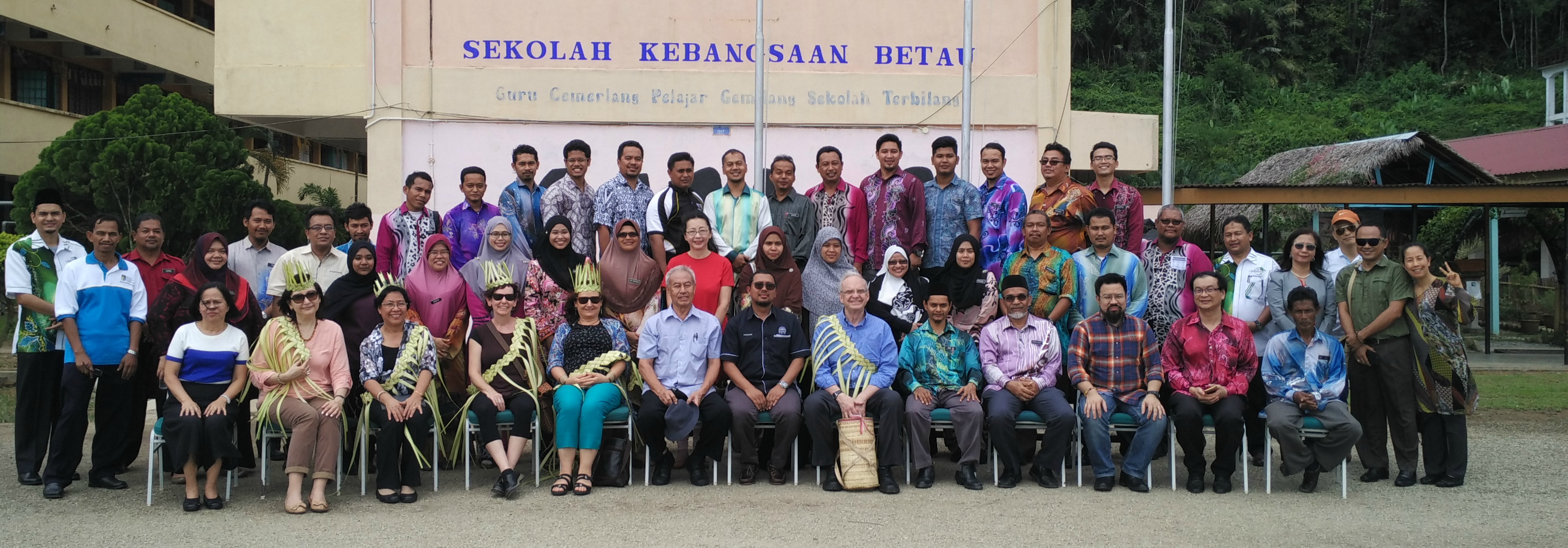New opportunities in the field of ESD: CAREC is invited to coordinate sub-regional component of the Global UNESCO project
January 18-21, 2017, CAREC representative participated in the Planning Meeting on the Global UNESCO project “Reorienting Education and Training Systems to Improve the Lives of Indigenous (IP) and Marginalized Youth” for Asia/Oceanic Region on the UNESCO Global Meeting for Asia/Oceanic Region held in the Universiti Sains Islam Malaysia in Nilai, Malaysia.
 _____________________________________________
_____________________________________________
The project is directed for implementation of the Sustainable Development Goals (SDGs) at global, regional, sub-regional, national and local levels over the world, namely the SDG 4 “Quality Education” and will have sites in approximately twenty participating countries, including Central Asia.
The project intends to generate academic research into how schools and formal education systems could change to better meet local education needs of the indigenous and marginalized youth in traditional communities and to develop recommendations to assist education leaders worldwide.
Taking into consideration CAREC role as facilitator of regional cooperation on environment, sustainable development and ESD in Central Asia, CAREC has been invited by UNESCO to become a sub-regional coordinator of the project in six countries: Kazakhstan, Kyrgyzstan, Tajikistan, Turkmenistan, Uzbekistan and Afghanistan.
CAREC will bring to the project its own regional expertise in ESD, water, climate change, energy and SDGs education and capacity-building, involve exiting regional networks of the USAID Smart Waters academic societies, CA Leadership programme alumni, pilot territories and best practices in research.
There are three main objectives at the outset:
o To develop local approaches to improve the education of the school-age youth
o To improve the overall quality of community well-being as defined by the community itself
o To disseminate the research findings to assist and guide other ministries of education and school systems in their attempts to meet their SDG responsibilities and targets
The core concept is to embed relevant social, environmental and economic issues along with local knowledge from elders and other community members to deliver a quality education. The Project will each have a research partner that will be responsible for tracking and documenting the results and findings.
The CA component of the project will be implemented under the Asian-Pacific region; for better project communication and exchange by information and best practices, it was established a communication platform.
________________________________________
It is planned that a first introductory sub-regional meeting on the project for the CA countries and Afghanistan will be held in CAREC, Almaty, Kazakhstan for the last week of June 2017.
Background
2015 and 2016 have seen remarkable changes to education at the national and international levels. The SDGs and Education 2030 which is the implementation program for SDG Goal 4 define the following objective for all UN member states: “By 2030 ensure that all girls and boys complete free, equitable and quality primary and secondary education leading to relevant and effective learning opportunities”. Countries will now be reporting their individual progress regarding this ambitious goal and its seven targets periodically to the United Nations. Country and regional statistics will be published annually in the Global Education Monitoring Report (GEMR). Inter alia, SDG Goal 4.5 – one of the seven targets – states: “By 2030, eliminate gender disparities in education and ensure equal access to all levels of education and vocational training for the vulnerable including Indigenous people and children living in vulnerable situations”.
The first thrust of education for sustainable development (ESD) is Access to and retention in a quality education. Thus it is imperative that those who work in ESD try to address the issue of the millions of undereducated who are disenfranchised by their lack of education. More information on education for sustainable development is available here.
Project coordinator: Dr. Charles A. Hopkins, UNESCO Chair in Reorienting Teacher Education to Address Sustainability at York University, email: CHopkins@edu.yorku.ca
